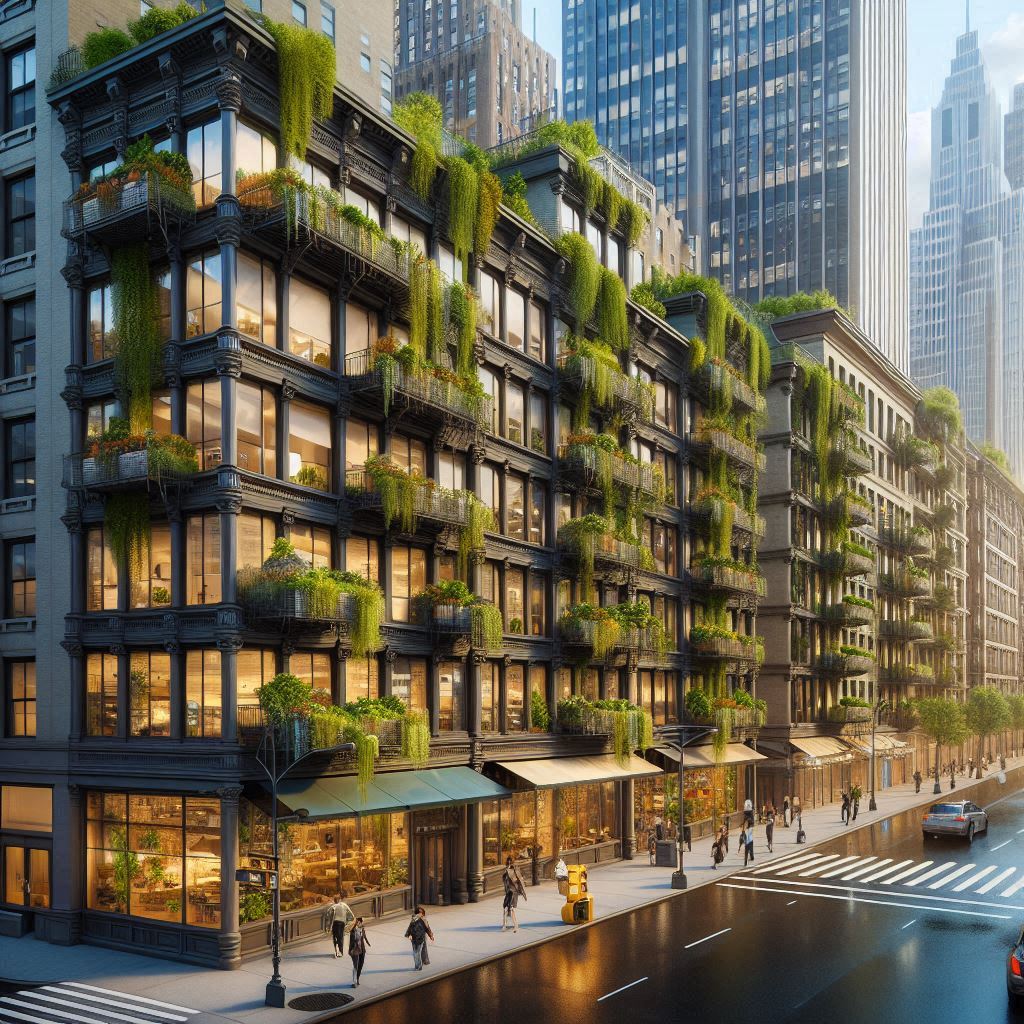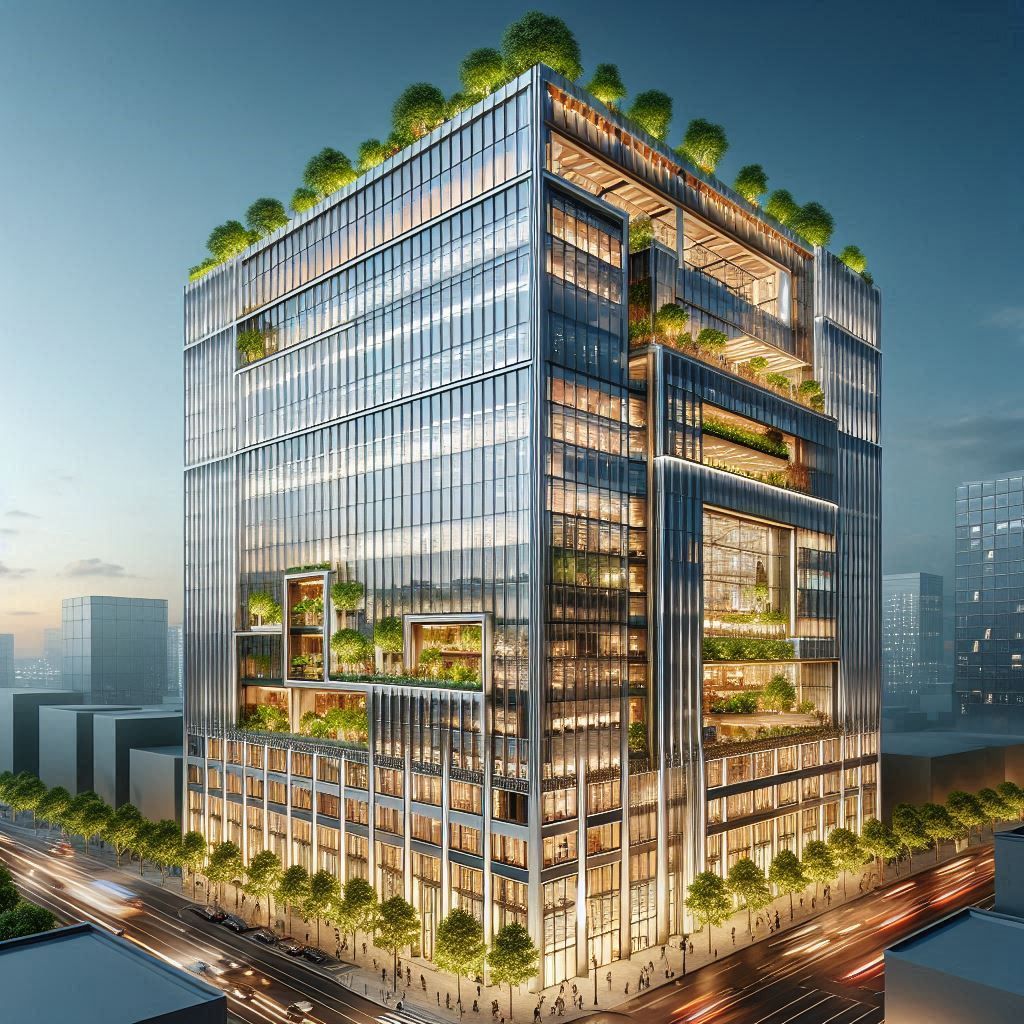I. Introduction
In the bustling metropolis of New York City, the groundbreaking Local Law 97 (LL97) stands as a beacon of progressive environmental regulation. Introduced as a critical component of the larger Climate Mobilization Act, LL97 represents an ambitious stride toward greening one of the world’s most iconic cityscapes. With a keen focus on large buildings—which are responsible for a significant portion of urban greenhouse gas emissions—this legislation is poised to drive a major transformation in how buildings are constructed, maintained, and operated.
Understanding and complying with LL97 is not simply a matter of legal necessity for building owners; it is also a pivotal step in aligning with contemporary standards of sustainability and social responsibility. This article seeks to serve as a comprehensive guide, offering insightful strategies to effectively mitigate the risks associated with LL97, and positioning building owners for successful adaptation to this new regulatory landscape.
II. Understanding Local Law 97
The Essence of LL97
Enacted in 2019, Local Law 97 is a pioneering move by NYC to address the climate crisis head-on. The law targets citywide greenhouse gas emissions, with specific provisions focusing on buildings larger than 25,000 square feet—encompassing approximately 50,000 of the city’s structures. Local Law 97 enforces strict carbon emission caps, slated to take effect in 2024, with even more rigorous limits set for 2030, propelling New York towards its goal of 80% emissions reduction by 2050.
Goals and Targets
The legislation is not just regulatory; it is visionary. LL97 aims to transform NYC into a leading example of urban sustainability, spurring advancements in green building strategies and energy efficiency that can serve as a blueprint for cities worldwide. It lays the groundwork for innovation in architectural design, construction materials, and building operations conducive to a low-carbon future.
Affected Stakeholders
LL97 impacts a broad spectrum of the real estate sector—commercial landlords, residential building owners, facility managers, and even tenants all have roles to play in compliance. The law is particularly consequential for owners of older buildings, who face the steepest path to adherence given the historically inefficient nature of such structures.
III. Implications of Non-compliance with Local Law 97
Penalties and Risks
Building owners who defy LL97’s mandates encounter significant penalties. Fines are determined based on the extent to which emissions exceed the prescribed limits, potentially reaching millions of dollars annually for larger buildings with sizable overages. This steep financial risk is compounded by the potential for increased scrutiny from investors, lenders, and insurers who are progressively weighing environmental risks in their decision-making processes.
Value and Reputation Impact
Non-compliance can also precipitate a decline in property value, as prospective buyers or tenants may be deterred by the sustainability shortfalls and looming financial liabilities of non-compliant buildings. Additionally, reputational damage is a critical consideration. In an era where environmental consciousness is ever-growing, the social cost of non-adherence could be as impactful as the financial one, with public perception and tenant relations at stake.
IV. Top Strategies to Mitigate Local Law 97 Risks
Energy Efficiency
Implementing energy-efficient upgrades is the cornerstone of LL97 compliance. This encompasses the installation of LED lighting, energy-efficient HVAC systems, and advanced insulation materials. The adoption of smart building systems, such as automated heating, cooling, and lighting controls, can significantly optimize energy use and reduce emissions. Building owners should also consider integrating on-site renewable energy generation, like solar power, to further drive down their carbon footprint.
Regular Energy Audits
Conducting regular energy audits is a strategic approach to staying ahead in LL97 compliance. Audits can reveal inefficiencies in energy consumption, allowing for targeted interventions that can substantially cut emissions. These audits not only support compliance but also contribute to operational cost savings and an enhanced environmental profile.
Retrofitting Buildings
Retrofitting existing buildings is essential to meet the stringent requirements of LL97. Improvements such as upgrading boilers, enhancing building envelopes, and installing modern energy management systems are among the measures that can significantly reduce a building’s emissions output. Notably, projects like the iconic Empire State Building retrofit have demonstrated that such investments can lead to substantial energy savings and serve as a flagship example of responsible building management.
Collaboration with Energy Consultants

Navigating the complexities of LL97 is a task that can benefit greatly from specialized expertise. Building owners are encouraged to partner with professional energy consultants who can provide comprehensive guidance on green building strategies and regulatory compliance. These experts can assist in developing a tailored compliance roadmap, ensuring an efficient and cost-effective path to meeting LL97’s benchmarks.
Tenant Education
Success in LL97 compliance is not solely a top-down effort. Educating tenants on sustainable practices is a vital component of a holistic strategy. Building owners can foster a culture of conservation by sharing energy-saving tips and encouraging environmentally friendly behavior. Engaging tenants through education and incentives can lead to collective action that contributes to the building’s overall energy performance.
Government and Private Support
Thankfully, NYC building owners are not left to confront LL97 alone. The city offers a suite of incentives and support programs to assist in the transition to energy-efficient building operations. Additionally, private sector support, including financing options and partnerships with technology providers, is available to ease the investment in sustainable upgrades.
V. Conclusion
Local Law 97 is more than a regulatory hurdle; it is an invitation for NYC building owners to reimagine their properties through the lens of sustainability and innovation. While compliance is imperative, the broader benefits of adhering to LL97—environmental stewardship, operational savings, and enhanced property value—underscore the multifaceted value of investing in energy efficiency. As New York City takes bold steps toward a greener future, building owners have the opportunity to be at the forefront of this transformation.
As the deadlines for LL97 loom, now is the moment for building owners to act. Engaging with the law’s requirements, understanding its implications, and harnessing the available resources and strategies can secure not just compliance but also competitive advantage. We invite you to join the growing cohort of property owners who are leading the charge toward a sustainable, prosperous urban future. Share your journey toward LL97 compliance, seek advice, and be part of the narrative that champions a cleaner, greener New York City.
VertPro.com serves as a resourceful platform for property owners and managers seeking to enhance their buildings’ energy efficiency. The site offers a range of services, including Commercial Energy Audits, Benchmark Compliance consultancy, and a Construction Marketplace. At the heart of VertPro® is a suite of SaaS technology-based solutions designed to assist in navigating the complexities of Energy Benchmarking and Energy Audits/RCx Plus, while ensuring adherence to over 60 Energy Benchmarking and Energy Efficiency Laws across the country.
For those looking to improve their property’s energy usage and operational value, VertPro.com provides a diverse array of tools and information. The site aims to facilitate a better understanding of energy efficiency practices and legislation, helping building owners and property managers make informed decisions about their energy strategies while complying with all energy ordinances and laws.


